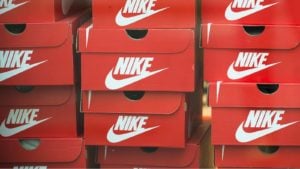
Some once great companies have fallen on hard times, causing their stock to sink. While surprising, the long-term decline of powerful brands is nothing new. Business history is littered with discarded companies that were once dominant but became irrelevant value traps over time. Many great companies cease to exist and become top blue-chip stocks to sell.
Think of names such as Eastman Kodak (NYSE:KODK), Compaq Computer and F.W. Woolworth. It’s important for investors to recognize when the company behind a stock is struggling with long-term, likely irreversible problems. Sure, any company can have a bad quarter or even a bad year. But when the struggles carry on for years, it’s likely best to dump a stock that’s become a drag on a portfolio. Here are three failing blue-chip stocks to sell in February.
Cisco Systems (CSCO)

Cisco Systems (NASDAQ:CSCO) started its most recent earnings report by announcing it’s cutting 5% of its workforce, or about 4,250 jobs, as it sees slowing growth ahead. While the technology giant reported decent financial results for its fiscal second quarter, it gave a downbeat forecast for the current quarter and the entire year. That news sent CSCO stock down 6%, continuing a long-term decline in this once mighty company. Over the past five years, Cisco’s share price has fallen 3%.
Cisco forecast a profit of $0.86 on sales of $12.30 billion for the current quarter. Analysts expected earnings of $0.92 on $13.09 billion in revenue. This year, Cisco foresees $3.74 in earnings per share (EPS) and $52.50 billion in revenue. That, too, was lighter than the $3.86 in earnings and $54.26 billion in sales expected on Wall Street. Additionally, Cisco is still trying to close its $28 billion acquisition of monitoring and security software maker Splunk (NASDAQ:SPLK), a big pill to swallow.
Nike (NKE)

Speaking of layoffs, sneaker and athletic wear giant Nike (NYSE:NKE) just announced plans to cut 2% of its global workforce or more than 1,600 jobs, as it tries to lower expenses amid weak demand and uncertainty. This is the latest in a series of bad news from Nike. The company warned in January that retailers are lowering their orders for its sneakers and athletic apparel through wholesale channels. It continues to be impacted by the economic slowdown in China, its second largest market.
Last December, Nike announced a $2 billion cost savings plan over the next three years as it reported disappointing earnings. The cuts include reducing management positions and $450 million in employee severance costs. However, Nike continues to lose ground to upstart brands such as Deckers Outdoor’s (NYSE:DECK) Hoka running shoes. This looks to be a troubling long-term trend weighing on NKE stock, down 3% year to date and down 17% in the past 12 months.
eBay (EBAY)

eBay (NASDAQ:EBAY) is another blue-chip company undertaking layoffs due to declining sales. In January, the e-commerce giant announced plans to eliminate 9% of its workforce, or about 1,000 full-time employees, to control costs and lower expenses. eBay also said it plans to “scale back the number of contracts we have” in 2024. Management stressed that the job cuts are necessary because expenses have outpaced the company’s growth in recent years.
Last fall, eBay issued revenue guidance for the year-end holiday sales period that fell far short of Wall Street estimates, causing its stock to drop sharply. At the very start of this year, the company agreed to pay a $3 million criminal penalty as part of a settlement related to a harassment campaign carried out by some of its former employees. This negative news has dragged EBAY stock down 1% on the year, bringing its 12-month decline to 10%—definitely time to sell.
On the date of publication, Joel Baglole held a long position in DECK. The opinions expressed in this article are those of the writer, subject to the InvestorPlace.com Publishing Guidelines.






